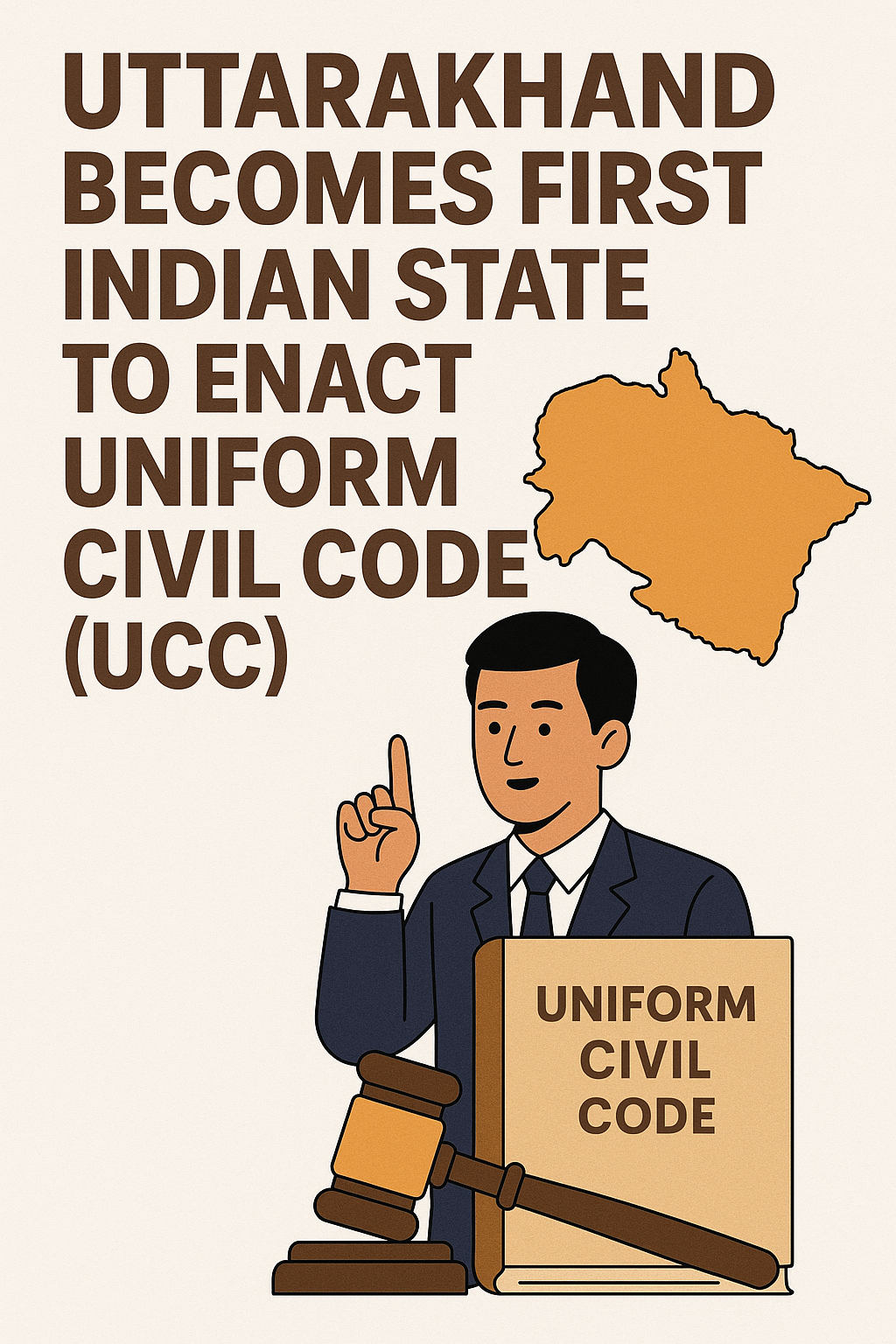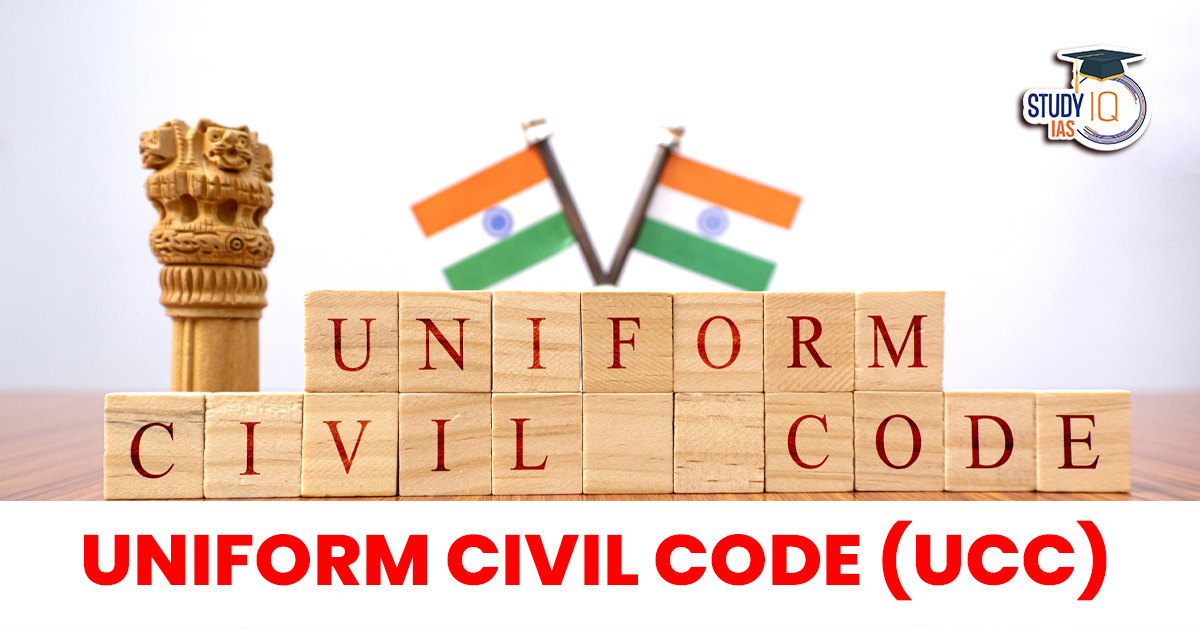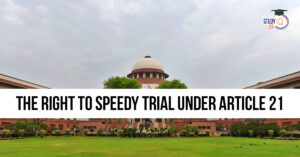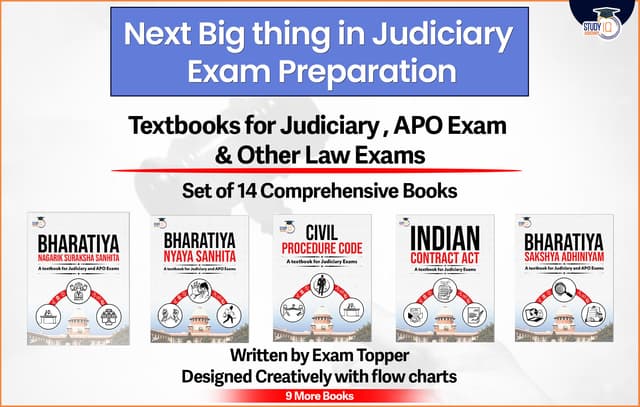Table of Contents
Why in the news?
Uttarakhand officially became the first Indian state since independence to implement a Uniform Civil Code (UCC). This landmark reform introduces a common set of civil laws that apply uniformly to all residents of the state, regardless of their religion, caste, or community. The primary objective of the UCC is to promote legal equality and social justice by replacing diverse personal laws with a standardised legal framework.
Uniform Civil Code (UCC)

Key Features of Uniform Civil Code (UCC)
The Uniform Civil Code (UCC) addresses several key aspects of personal law to promote inclusivity and gender equality.
Firstly, it impacts marriage and divorce by mandating monogamy and setting uniform marriageable ages. This is complemented by the requirement for compulsory registration of marriages and divorces, ensuring that all unions are legally recognized and protected.
In terms of inheritance and succession laws, the UCC ensures equal property rights for both men and women. This significant change eliminates gender-based disparities in property ownership and inheritance, providing a fairer legal framework for all individuals regardless of gender.
Furthermore, the UCC extends its provisions to live-in relationships. Under the new regulations, such relationships must be registered, granting couples legal recognition and protection under the law. This move acknowledges the evolving nature of relationships in society and provides a means for legal recourse and rights for partners in live-in arrangements.
By harmonizing these personal laws, the UCC seeks to foster inclusivity, gender equality, and legal clarity across diverse communities. This comprehensive approach ensures that everyone, irrespective of their background or gender, can enjoy equal rights and protection under the law.
The Uniform Civil Code (UCC) is designed to harmonise diverse personal laws under one comprehensive legal umbrella. Essentially, it replaces a patchwork of religious or community-based regulations with a single, uniform framework that governs personal matters. This unification deals with issues ranging from marriage and divorce to inheritance and even live-in relationships, ensuring that every citizen is subject to the same set of legal standards. This consistency is intended to foster fairness, reduce legal ambiguities, and promote equality across the board.
One of the several standout features of the UCC is its clear mandate on the legal age for marriage. The Code specifies a uniform threshold, setting the marriageable age at 21 years for men and 18 years for women. This standardisation is intended to ensure that all individuals enter into marriage with a similar degree of legal and physical maturity, a crucial step toward safeguarding the rights and well-being of all parties involved.
In addition, the UCC takes a firm stand against practices that have long been considered discriminatory. Both polygamy and the practice of ‘halala’, a procedure that previously forced a divorced woman to marry another man in order to remarry her former husband, are explicitly prohibited under the new code. By banning these practices, the UCC addresses inherent inequalities, especially those that have historically disadvantaged women.
Finally, the UCC mandates that every marriage and divorce be formally registered. This critical requirement ensures that all unions are legally recognised and documented. The registration process not only provides clarity and transparency in legal matters such as property rights and inheritance but also acts as a safeguard for couples, ensuring that their rights are upheld by the state.
Abolition of Halala and Iddat
Under the new Uniform Civil Code, the state has taken a decisive step to do away with two practices that have long been critiqued for their adverse impact on women’s autonomy.
Halala
Traditionally, Halala is a custom in which a divorced woman is required to enter into a temporary or predetermined marriage with another man, often with the explicit purpose of legitimising her eventual reunion with her former husband. This practice has been widely criticised for turning personal relationships into a procedural formality that undermines the dignity and rights of women. By abolishing Halala, the UCC ensures that a woman’s right to remarry or choose her partner is not conditioned on such exploitative practices.
Iddat
Iddat is a mandated waiting period prescribed after a divorce or the death of a husband, during which the woman is expected to refrain from remarrying, observe specific conduct, and in some cases, remain in seclusion. This waiting period, though historically intended to confirm the absence of pregnancy or to allow for emotional and social readjustment, has increasingly been seen as a restrictive imposition on women’s freedom to move forward with their lives.
The abolition of Iddat under the UCC removes this obligatory waiting period, thereby granting women greater control over their life choices following a marital dissolution.
Both of these reforms signify a shift towards a more egalitarian legal framework, addressing and rectifying practices that many view as discriminatory and an impediment to gender equality.
Legal Rights and Inheritance
In addition to reforming marital practices, the UCC also brings about significant changes in property and inheritance laws. Under the new code, the traditional divides based on gender in the realm of inheritance are eliminated. Men and women are granted equal rights when it comes to inheriting property. This important change breaks away from long-established, often patriarchal, norms that favoured one gender over another, and aims to promote true equality under the law.
Children’s Rights in Live-in Relationships, recognising the evolving nature of relationships, the UCC ensures that children born from live-in partnerships enjoy the same legal protections and rights as those born within the bounds of marriage. This measure is designed to prevent any form of discrimination, ensuring that all children have equal access to their legal entitlements regardless of the marital status of their parents.
In summary, by eliminating practices like Halala and Iddat and ensuring equal rights in inheritance and for children from various forms of relationships, the UCC is working to provide a more equitable and modern legal framework. This comprehensive reform not only enhances individual rights but also underpins the broader goal of fostering gender equality and social justice in personal law.
Key Changes
Online Registration Portal
A new digital platform has been introduced to simplify the registration of marriages, divorces, and live-in relationships. This innovative online portal enables Uttarakhand residents to handle all the necessary registration procedures from the comfort of their own homes, eliminating the need for in-person visits to government offices.
Additionally, the system offers real-time tracking of application progress through email or SMS updates, making the process transparent and user-friendly.
Exemptions and Applicability
While the UCC is designed to cover all residents of Uttarakhand—including those living beyond its bordersnit also incorporates specific exemptions. Notably, members of Scheduled Tribes and other protected communities are not required to adhere to all of its provisions. These exemptions are carefully maintained to honour and preserve the distinct cultural practices and traditions of these groups, ensuring that the pursuit of uniformity does not come at the expense of cultural heritage.
Public Response and Implementation Process
The roll-out of the UCC has elicited a spectrum of public reactions. Its supporters celebrate the move as a significant stride toward fostering equality and justice by unifying diverse laws under one comprehensive framework. Conversely, some critics express concerns that the new code might deepen societal divisions or undermine long-standing cultural norms.
Importantly, the development of the UCC was a highly consultative process, having incorporated feedback from more than 230,000 citizens. This extensive public engagement reflects an effort to create a balanced reform that resonates with a broad cross-section of society.


 A Choice Before India: Rule of Law or Ru...
A Choice Before India: Rule of Law or Ru...
 The Right to Speedy Trial Under Article ...
The Right to Speedy Trial Under Article ...
 Making Forest Conservation Work for Fore...
Making Forest Conservation Work for Fore...



















